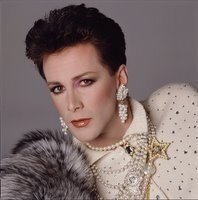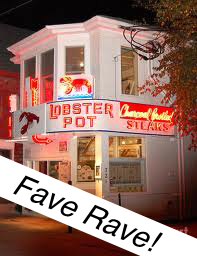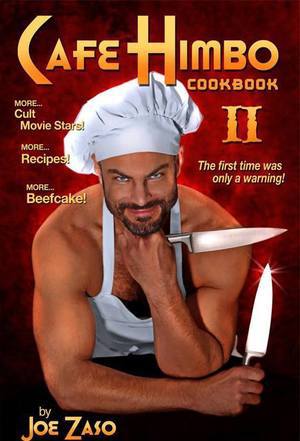A New Sybil's "WHO'Z DAT?"... GUY KIBBEE (March 6, 1882 - May 24, 1956).
/Darlings! Mummy has made a decision! After reading dozens of posts and having hundreds of conversations with well-meaning folks who just don't know about the great CHARACTER actors who gave films the depth and genius that surrounded and supported the so-called "stars", I am going to post a regular, special entry called SYBIL'S "WHO'Z DAT??"....there'll be photos and a mini-bio, and the next time you see one of those familiar, fabulous faces that you just "can't quite place".......well, maybe these posts will help. Some of these actors worked more, had longer and broader careers, and ended up happier, more loved, and even wealthier than the "stars" that the public "worships"......I think there may be a metaphor in that! What do you think??? And while you’re considering it, here is one of the very most recognizable faces and voices in all Hollywood… and a person unlike any, ANY other actor; Guy Kibbee (March 6, 1882 – May 24, 1956)
Born Guy Bridges Kibbee in El Paso, Texas, he began his entertainment career on Mississippi riverboats at the young age of 13 as a singer and comedian. His father James was a publisher of small papers such as the Concho Times and Burnet Bulletin around El Paso, Texas, and Roswell, New Mexico. A few of his sons followed him into the trade, and Guy used to help out. The experience proved valuable during the early years of his stage career. Decades of obscurity awaited Guy Kibbee, who played in stock companies from San Francisco to Portland, Denver and Salt Lake City, Lincoln, Nebraska, Shreveport, Louisiana, and Wichita, Kansas. He managed the Wichita company, and his younger brother Milton joined that troupe in February, 1917.
Guy Kibbee played everywhere, taking a break only for the four years (probably just after his first marriage) that he operated his own printer’s shop in San Francisco. “I did go to Broadway once with Hugh O’Connell,” Kibbee recalled in 1932. “All that was available was small parts. O’Connell told him to stick it out, and he’d become a big success. But Kibbee elected to return to stock where he was known and could always get work. He wouldn’t play on Broadway again until called by an “actor proof part”, that of Cass Wheeler in TORCH SONG. Playwright Kenyon Nicholson introduced Kibbee to Arthur Hopkins, who was casting the play, though Hopkins got all of the credit for the discovery: “And now Mr. Hopkins magically produces an extraordinary talent in the person of Guy Kibbee,” critic Ward Morehouse wrote. When mentioning Kibbee in his review of TORCH SONG for the Brooklyn Daily Eagle, critic Arthur Pollock kept it simple: “He is delicious.” It was a performance that brought Hollywood calling and a part that Kibbee would reproduce on a smaller scale in MGM’s adaptation of Nicholson’s play, retitled LAUGHING SINNERS with Joan Crawford, Neil Hamilton, and Clark Gable among those billed over Kibbee.
In the 1930s, Kibbee moved to California and became part of the Warner Bros. stock company; contracted actors who cycled through different productions in supporting roles. Kibbee's specialty was daft and jovial characters; not particularly bright businessmen, government officials, and stuffy lawyers with a secret weakness for showgirls. In musical comedies, he is perhaps best remembered for the films 42ND STREET (1933), FOOTLIGHT PARADE (1933), GOLD DIGGERS OF 1933 (1933), DAMES (1934), WONDER BAR (1934), BABES IN ARMS (1939) with Judy Garland and Mickey Rooney, and several others, usually with Dick Powell, Aline MacMahon, Joan Blondell, and Jimmy Cagney. As loveable and foolish as these characters were, his range and audience appeal could also make him a strong stand-out in dramas like MR. SMITH GOES TO WASHINGTON (1939) with Jimmy Stewart, RAIN (1932) with Joan Crawford and Walter Huston, most especially as Mr. Webb, editor of the Grover's Corners, New Hampshire newspaper, and father of Emily Webb, in the film version of the classic Thornton Wilder play OUR TOWN (1940) starring a young William Holden and Martha Scott.
He appeared in swashbucklers like CAPTAIN BLOOD (1935) with Errol Flynn and Westerns like FORT APACHE (1948) with John Wayne and Henry Fonda. His natural warmth and easy-going nature made him a perfect foil for major child stars like Freddie Bartholomew in LITTLE LORD FAUNTLEROY (1936) and Shirley Temple in CAPTAIN JANUARY (1936) where he played the title character. RKO studios loved his energy so much in BABBITT (1934) that they cast him in five installments in the Scattergood Baines comedies, a lighter-hearted take on Babbitt and less satirical.
“Guy Kibbee eggs” is the name for a breakfast dish, which consists of a hole cut out of the center of a slice of bread, and an egg cracked into it, all of which is fried in a skillet. The actor prepared this dish in the Warner Bros. film MARY JANE'S PA (1935), hence the eponym. This dish is also known by other names, such as "egg in a basket". The movies proved easy work for “quick study” Kibbee, who was happy to settle down in one place for a change. “You can learn, between traffic light changes, all you’ll have to do the next day,” he said of learning his lines. “They do one scene over and over again, so many times that about all you need to do at first is read the part through.”
Kibbee was known as a big eater and “loved cards, golf, baseball, football,” remembered a friend, the columnist Henry McLemore. “He was an amazing golfer,” McLemore added (a ten or eleven handicap), and “a tough gin rummy player.” McLemore recalled pal Kibbee as an early riser, reasoning, “There just wasn’t enough time to live, and Guy didn’t want to waste any of it.”
Kibbee also became a regular on radio late in his career appearing on the Mutual Network’s comedy “Pal Rod and Gun Club of the Air” beginning in 1950. “You’d be surprised at the sympathetic mail I get as a result of the program,” Kibbee said. An avid sportsman, on the Rod and Gun show he posed as a completely helpless fisherman and hunter and spun tall tales that were sent to the show by its listeners. “Around here I can just take it easy, do this radio show and whatever other work I want to take on,” Kibbee said. He was also appearing in nightclubs at this time, just getting up on stage and telling stories about his days starting out in the riverboat shows and in the early days of Hollywood. Kibbee claimed in interviews that, “I did a couple of plays on the stock circuit this summer, played a couple of country fairs with my monologues and generally had a good—and profitable—time.”
He did a little television after this, but that medium wasn’t Kibbee’s cup of tea: “I’m not crazy about it. Too much work has to go into preparing for just one performance. I’ll leave that for the younger people.” He much more enjoyed his return to the stage where he headlined stock companies in titles like THE OLD SOAK and ON BORROWED TIME. “It’s a grand training ground for these youngsters,” Kibbee said of summer stock in 1950. “Takes the place of the old time stock companies in schooling them in the fine points of their profession.” He continued to appear on the Gun and Rod Club as late as March 1953, but it was later that year that the papers first reported Guy Kibbee was seriously ill with what was ultimately diagnosed as Parkinson’s disease, and he finally retired.
He spent nine months at the Aurora Health Institute in Rye, New York, where Walter Winchell directed readers to send the lonely actor some letters. Guy wrote back from the Institute thanking Winchell “for the coast-to-coast hook-up.” He said he had received over 3,000 cards and letters. From Rye he was sent to the Percy Williams Retirement Home in East Islip, New York, for sick and needy actors that was supported by the Actors Fund of America. “I’ve come to the bottom of the barrel,” Kibbee told the board of directors when he entered on September 24, 1954. He was bedridden at the home for over a year. The superintendent at Percy Williams’ said they always had Kibbee in to the common room to watch any old movies he had appeared in.
Kibbee was married twice; to Helen Shay from 1918 to 1923 with whom he had four children and divorced, and Esther Reed whom he married in 1925 and had three children. He was still married to her at the time of his death in 1956. Kibbee finally died from complications arising from Parkinson's disease in East Islip, Long Island, New York, and was buried in Westchester.
Guy Kibbee was mentioned in the iconic "Hot August Night" concert/album performed by Neil Diamond in 1972 at the Greek Theatre in Los Angeles, California. "Thank you people in the audience! Tree people out there, God bless ya, I'm singin for you too! Are you still there tree people? This is the place that God made for performers when they die, they go to a place called the Greek Theatre. And you're met there by an MC, wearing a long robe and smoking a cigar, looks like Guy Kibbee, and that's what it is. It's a performer’s paradise......"
[Want to read other fun and funny stories here on SybilSez.com? Just enter any topic that pops into your head in the "search" window on the upper right! Who knows what might come up?...and feel free to share them with your friends!]









